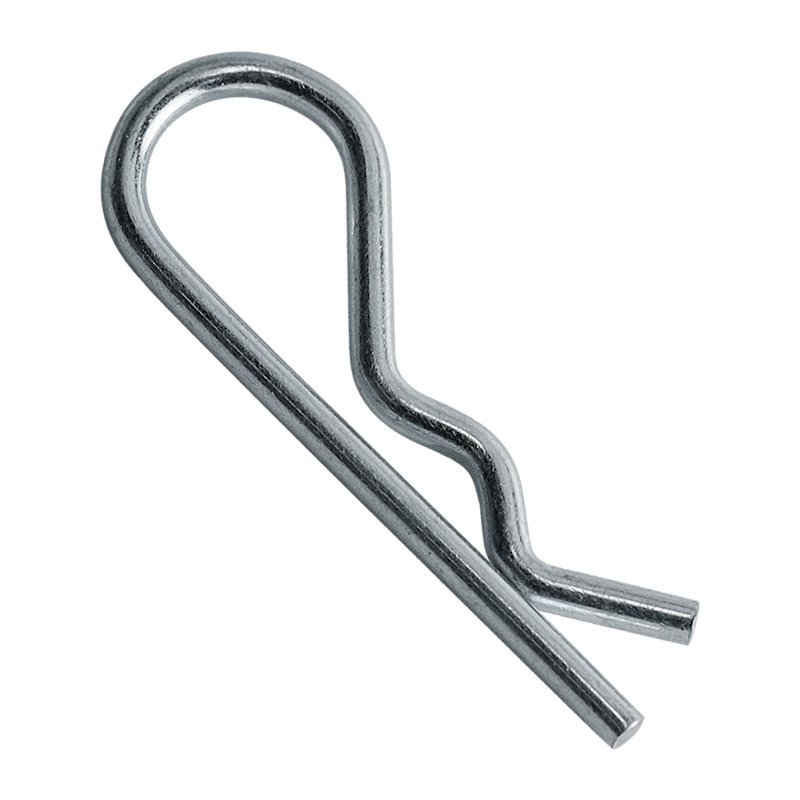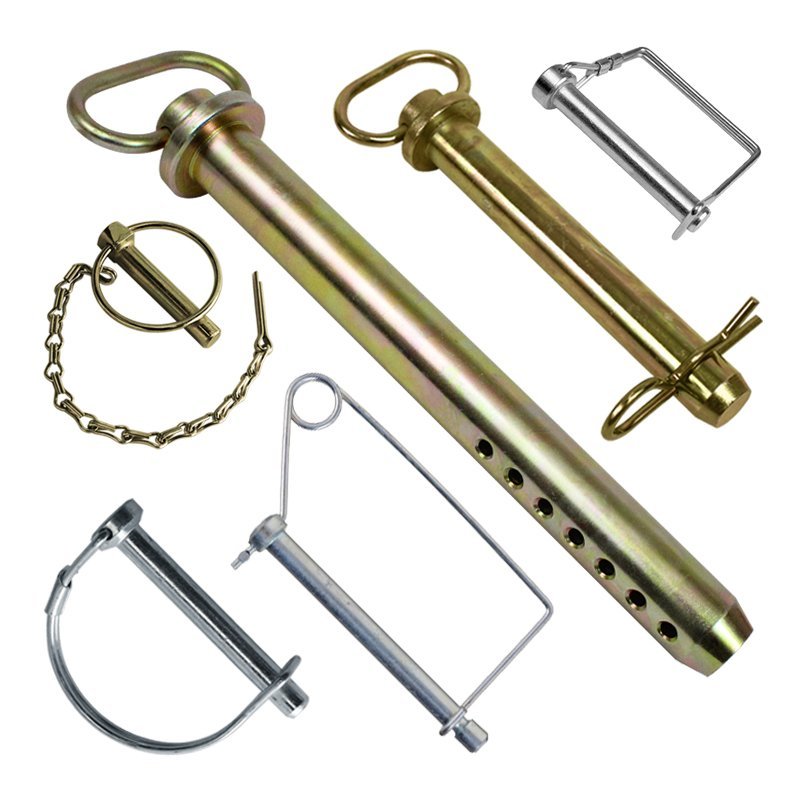Lynch Pins
Lynch Pins
Lynch pins - also commonly referred to as quick pins or linchpins - are pins with a self-locking ring threaded through the pin head that snaps shut over the pin, which is inserted crosswise through the end of an axle or shaft. These fasteners keep objects from sliding off its axle.
Huyett offers a variety of light-duty and heavy-duty carbon steel lynch pins, including a selection from our product line of
ITW Shakeproof® pins. Lynch pins are often used to attach tractor implements, secure trailer couplers, hitch pins, or doors, among a variety of other applications where quick connecting/disconnecting between mating parts is desired.
What to Consider When Buying Lynch Pins
Lynch pins often work in conjunction with other three-point pins to create temporary connections for agriculture equipment and machinery. There are several things to consider when shopping for lynch pins to ensure they are conducive to your application needs:
- Security: Will the self-locking ring provide enough security to keep your mating components in place?
- Strength: Will it handle the application load or force it will bear during operation?
- Material: Will the material and/or finish hold up under the application's environmental conditions (rain, debris, oils/chemicals, general exposure) and operational elements (movement, stress, etc.)?
- Fastener Dependency: Will the pin need to connect to other three-point hitch pins? Are those pins compatible with the material/size/locking mechanism of the lynch pin?
These considerations will help you make an informed decision about the requirements that your lynch pins need to meet to facilitate a safe and functional performance in your application.
Benefits of Using Lynch Pins
There are several benefits of working with these pins, whether you plan on using them in a three-point hitch system or on their own.
- Cost Efficient: They are extremely economical, especially because they can be reused.
- Versatile: They can be used on their own to keep a shaft component in place, but they are also commonly placed in the ends of hitch pins to keep them from sliding out of their mating component. They also work in less conventional ways as replacement or temporary locking mechanisms.
- Easy to Use: They are easily installed by releasing the self-locking ring, inserting the pin into the mating hole, and snapping the ring shut over the pin; they are just as easily removed and ready to reuse.
How to Measure a Lynch Pin
There are a wide variety of lynch pin sizes in inch and metric options. Regardless of the size, there are a few key measurements to take that will communicate the size of your pin.
Huyett provides these measurements in each lynch pin product detail page, but sometimes you need to know the measurements first in order to purchase the correct fastener. Check out our "How to Measure a Lynch Pin" video to watch one of our product experts walk you through which measurements matter and how to take them.
Lynch Pins in a Three-Point Hitch System
A three-point hitch system is the mechanism on the back of a tractor that lifts, lowers, or provides rotational power to tractor attachments like buckets, tillers, forks, etc. The system is composed of the power take off (PTO), hydraulics, and the attached implement.
Three-point pins create the connection method to keep the implement in place.
An example of a three-point pin connection is a trailer hitch,
yoke end,
hitch pin, and lynch pin. The trailer hitch fits in the middle of a yoke end that is attached to a hydraulic arm; a hitch pin threads through the yoke end and the trailer hitch to connect them, and the lynch pin secures into the hole at the end of the hitch pin to lock it in place.
Lynch Pins vs. Cotter Pins
The main difference between lynch pins and cotter pins are their design. Lynch pins feature the self-locking ring to snap into place, while cotter pins are typically bent into place. Both pins serve the same purpose, but there are a few key differences between them.
- Lynch pins are reusable; cotter pins are not
- Cotter pins are typically less expensive
- Lynch pins are better suited for heavy-duty applications (although size and material strength should be considered here)
- Cotter pins require a tool for installation; lynch pins are installed by hand
- Cotter pins provide a more permanent connection
There is no pin that is “better.” It all depends on the unique needs of your application.







